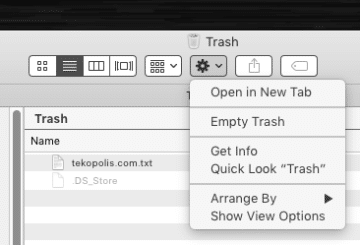Before we dig into the meat of the subject, lets discuss why we are here: Motivation.
Why spend all that time studying for a certification exam?
If you aren’t already passionate about the subject you are studying, then you might be searching for other reasons to pass a certification exam.
Perhaps you already have a job and your employer requires that you get certified to meet a vendor requirement. Many product vendors require resellers to employ certified experts to be granted larger discounts and thus more profit.
It is a fact that having a certificate or degree in a field will significantly increase your potential salary. Referencing this report from monster.com, there is a significant improvement to your pay if you have expert level certification!
Knowing how to solve problems can be very satisfying too! If not for the money or your employer’s check list, do it for the satisfaction.
So, now that we’ve established why we’re spending countless hours to get certified, let’s take look at how to get certified.
There are 5 steps to take each time you decide to pursue a certification
1. Know your exam
If you are pursuing a certification that requires passing more than one test, then figure out which test you need to take first.
For example, if you want to pass Cisco’s CCNP Routing and Switching exam, as of 2017 there are Three tests you have to pass to earn the certification.
Likewise, if you want to pass Cisco’s CCNA Routing and switching, you could take either One comprehensive exam or two more focused exams. Either way, passing the requisite exam(s) will earn you the certification.
Read the Blueprint!
Once you have identified which exam(s) you need to pass, most vendors or companies offering the exam will list the exam topics or objectives on their website. Sometimes this is called an exam blueprint similar to architectural blueprints.
Once you find the exam blueprint, review the topics. It is imperative that you know what topics you have to master before scheduling your test.
Doublecheck!
Also, be certain you are reviewing the correct version of the exam. Sometimes older versions of an exam are retired or are scheduled to be retired. It would be devastating to study for a test, only to find out it isn’t the right one or it is retired before you schedule it!
2. Find the Right Resources
Once you have familiarized yourself with the exam objectives it’s time to find the right resources.
Many times vendors will offer lists of books and study materials alongside the blueprint which simplifies your search. Review the list of materials and purchase what is needed to get started.
Mandatory Training Classes
Some vendors require signing up for their training before they’ll let you schedule an exam. This can be somewhat discouraging if you are just getting started and don’t have an employer to send you to a training course. These courses can be quite expensive!
Free as in Free
If you are on a tight budget, your best bet is to start with resources that are legitimately free. YouTube videos and vendor support documentation are both free and readily available.
You can spend hours reading through most vendors manuals. For example, Cisco and Citrix both publish detailed documentation on their website about all of the versions of their software.
Blogs FTW
Other resources such as blogs like tekopolis.com also provide a wealth of information. More practical examples to help strengthen what you learn elsewhere. However, you will most likely have to pay for books or exam prep resources at some point.
Be certain you have the correct version of the resources. In some cases content is updated significantly enough it renders the older material obsolete. Confirm software version numbers and release dates when printed on documentation.
3. Study, Study, and Study some more
Once you have your exam objectives and the relevant resources, it is time to dig in and start learning! This is where slow and steady wins the race.
Entire books focus on teaching how to study. This post won’t go into great depths on how to study. There are other resources available that do a better job of that. That said, here are a few tips that can help when studying for an exam:
Be thorough!
If you have a 1000 page book that lays out 80% of the test, start reading. It can be a daunting task when faced with a large volume of text and no structure.
The proven way to devour large books is
- systematically
- from beginning to end
- on a rigid schedule
I know this sounds awful, but thinking back to all the books I’ve read personally this is the fastest and most effective way I’ve devoured books.
You will devour a book much faster if you force yourself through a chapter every day. When starting each chapter, skim the whole thing from beginning to end to know how many pages you are reading. Try to pick out the topics and section titles.
Write what you read!
If you take hand written notes while reading, it will force you to slow down and focus on the topics in greater detail. This also has the added benefit of going over the material multiple times, once while you read it, and again when you write it.
Do you even lab?
Sometimes exams cover content that lends to building a lab. Without going into a huge section on lab building strategies, if you can practice configuring the same systems you are reading about in your book it will greatly improve your understanding of concepts. Most vendors offer some sort of downloadable virtual system that you can use to practice. Sometimes it requires signing up for a support account or even paying a small fee to license, but in the end it is worth the extra effort to solidify your knowledge.
4. Exam Drills
When you are most of the way through the learning/studying phase of your exam preparation, it’s time to start shifting to drills.
Drills consist of the following studying techniques.
First
- If you have a text book focused solely on the exam you are going to take, there are usually practice questions at the beginning or end of each chapter.
- Make it a point to review each question enough times to be able to answer without referencing notes.
Second
- There are sometimes third party exam test banks. We don’t condone using brain dumps. There are legitimate test banks you can buy that have similar questions to what you would see on the actual exam.
- If you want to buy a practice test, it can be very helpful as a study resource.
- The best way we’ve found to go through practice questions is to read the question, if you don’t know the answer off the top of your head, read through your books or search online to find the best answer, then see if that matches the practice exam answer.
- Don’t always take the practice exam’s answer as truth. Sometimes there are mistakes and it is best to know the material rather than memorize a set of questions and their answers.
Third
- Review all those notes you wrote while reading through your material. This will help reinforce what you read tremendously and help you recall topics much more quickly.
Fourth
- Skim through the headings and bold terms in your books and materials. The mere act of going through the book again and rereading the titles and keywords will refresh your memory.
5. Schedule and Pass Your Test
At this point, you are likely well prepared to attempt the exam. A good rule of thumb is if you are correctly answering practice questions more than 90% of the time. It is then you are probably ready to take the test and should schedule the exam.
Some people find it is motivating to schedule the exam before they are ready to actually take the test. You might find a similar strategy helpful. Whatever works for you, waiting until you are ready to pass it to schedule it, or scheduling the exam just after buying the book. If you find additional motivation in scheduling the test early then go for it.
Once you have your test scheduled and paid for, keep drilling and reviewing your notes until the day before the test.
Don’t stay up late the night before, make sure you get a decent night’s rest the night before the test.
Also, eat as healthy as possible the day before (and the day of) the test to ensure your body is physically able to support you. There are many stories of people eating huge meals before taking the test. They become tired and have a difficult time focusing on the questions and don’t pass.
One other point, don’t try to cram before the test. Try to keep your head clear. It’s OK to briefly review your notes to get your head in the right mode, but beyond that don’t overdo it on the day of your test. If you haven’t learned it up to this point, then try to reschedule your test. You probably aren’t going to cram enough material in the hour before the test to make a significant difference. You might even hurt your performance.
Summary
This methodology has been proven to yield success many times and hopefully will do so for you. Your mind is your greatest asset when climbing the career ladder or searching for a new job. Don’t cheat your way through because in the end you only end up cheating yourself when you can’t get the real work done.
If you would like to download a handy PDF version of this article and opt in to receive helpful content in you inbox, enter your data and click the button. You’ll be sent to the file download immediately after clicking the button below.
[yikes-mailchimp form=”1″]
- Tags: certification



